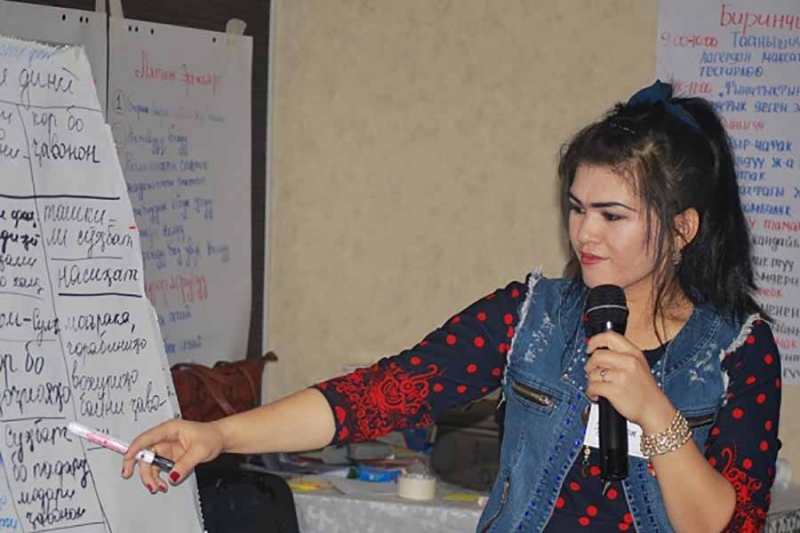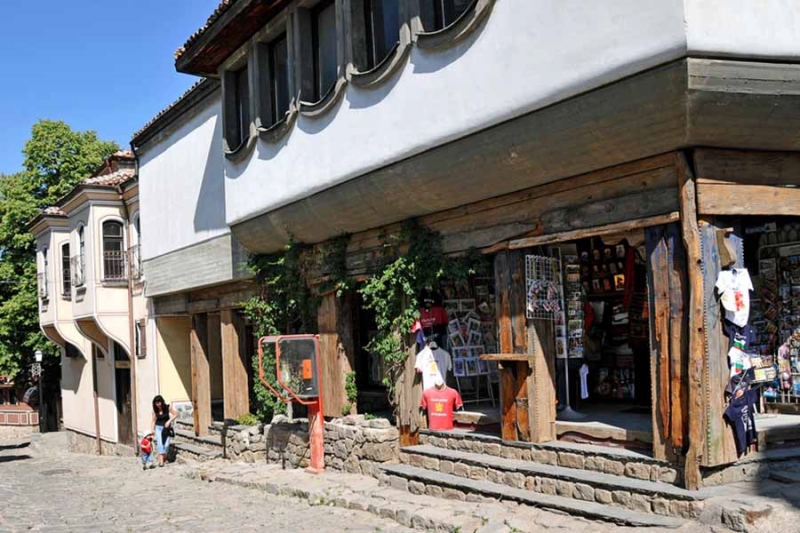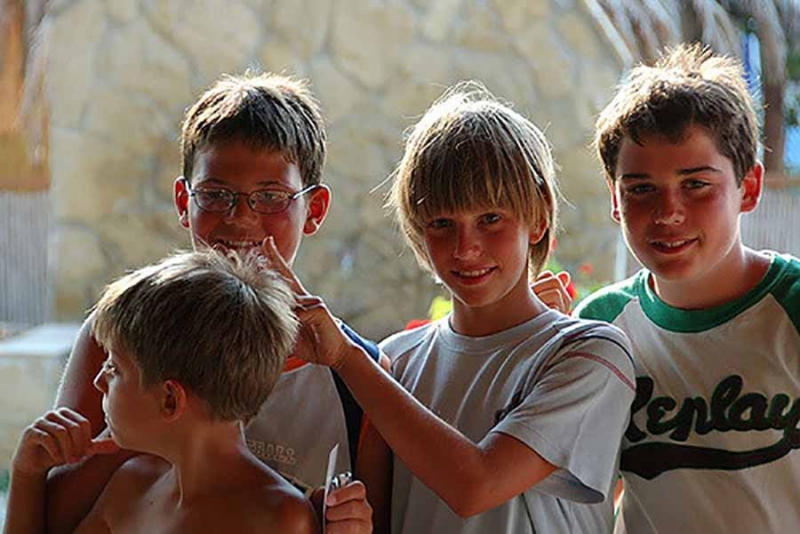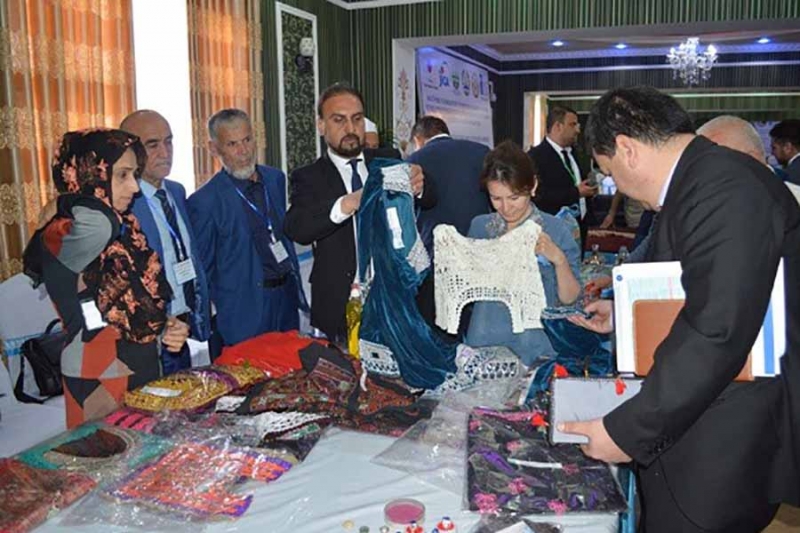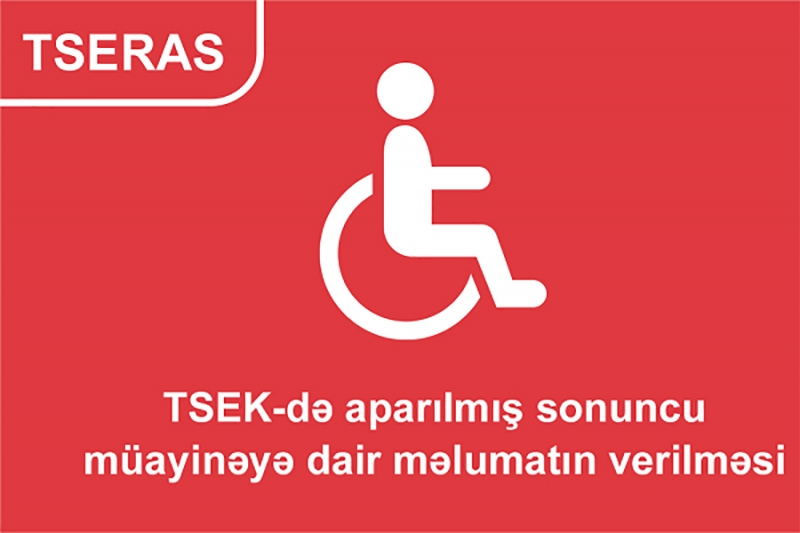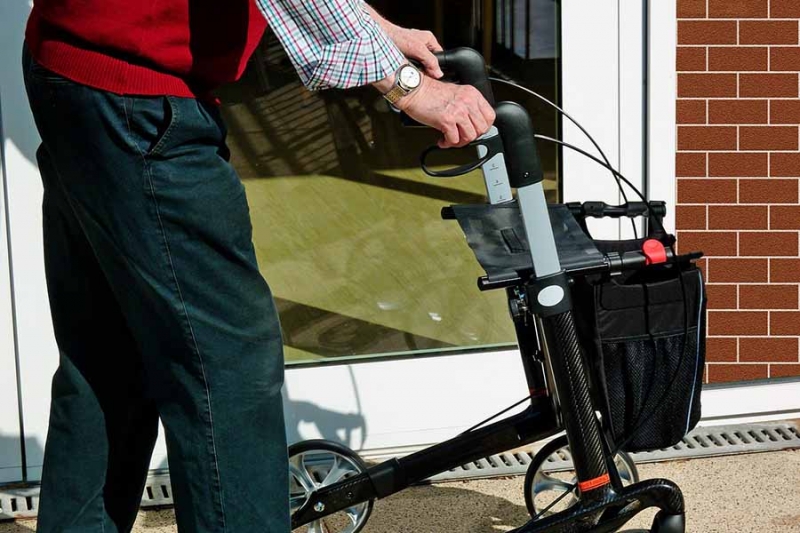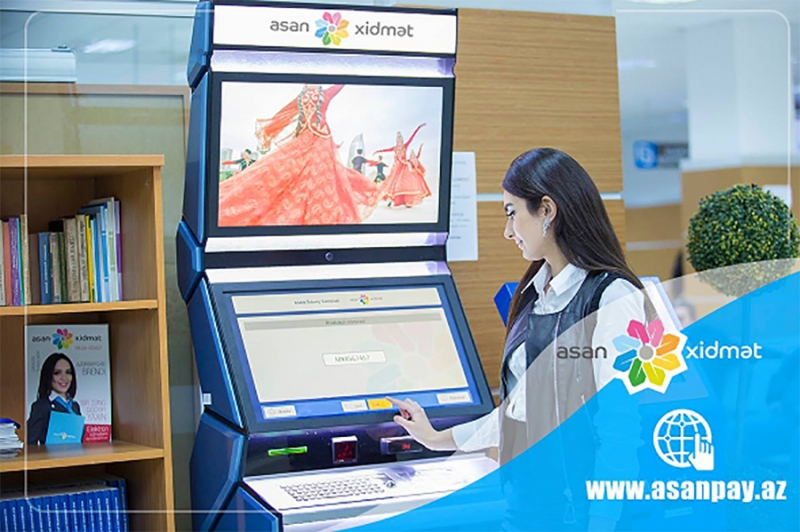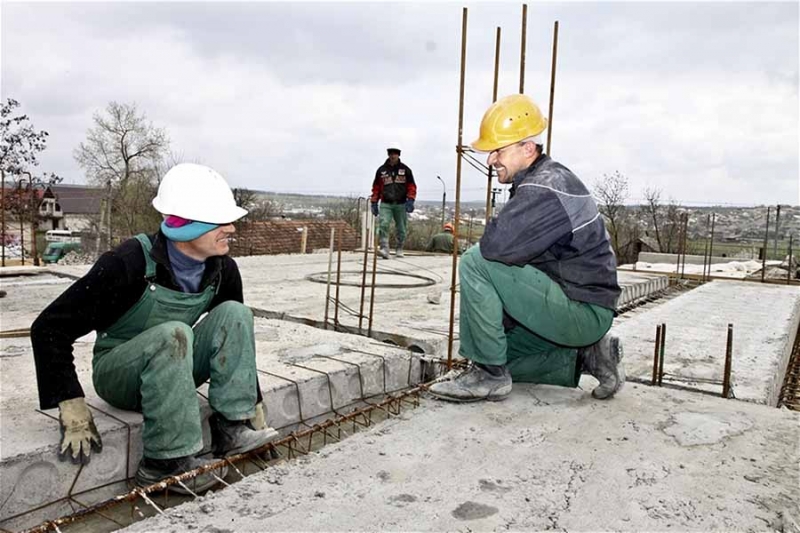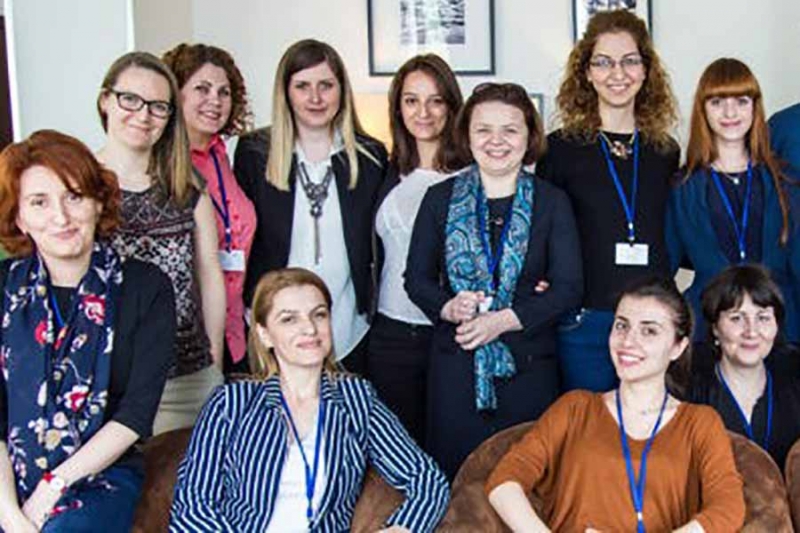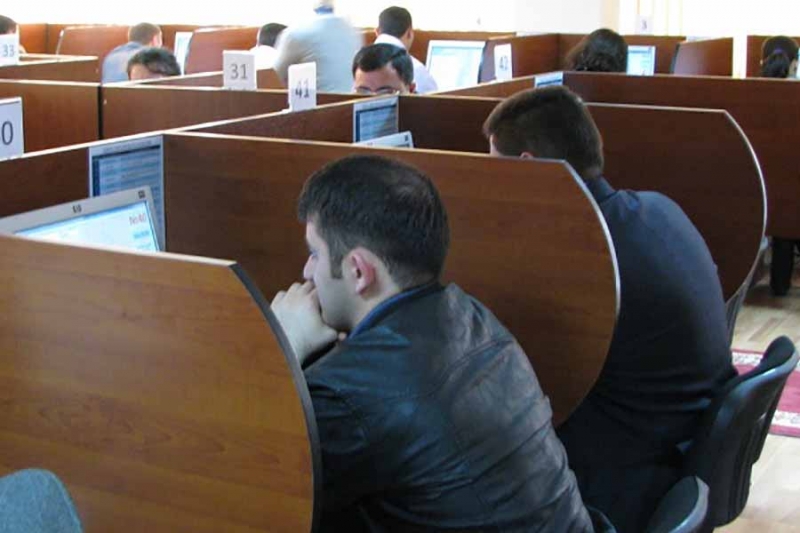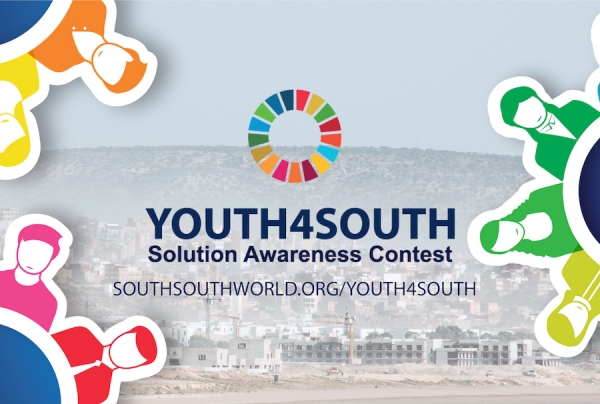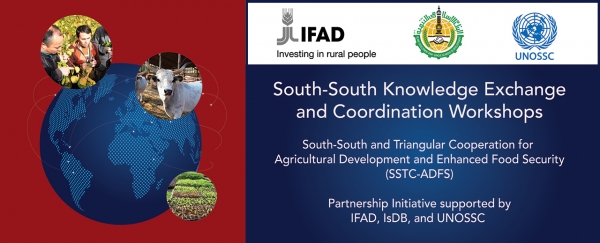 SSDA Solutions
South-South Development Academy
SSDA Solutions
South-South Development Academy
Blog
Countries involved: Kyrgyzstan and Tajikistan
Relations between Tajikistan and Kyrgyzstan can be characterized as cooperative and peaceful but there are a significant number of unresolved border-related issues that threaten to undermine the countries’ security and developmental gains. Analysis of the incidents between Kyrgyz and Tajik neighboring communities pointed to youth as a key demographic group behind much of the recently recorded inter-communal/ cross-border tensions. Given the fact to the demographic situation in both countries and significant representation of the youth in overall demographic structure of the population the decision was made to pay special attention to addressing the youth issues through a number of strategic interventions. Need assessment of youth identified poor communication and lack of cooperation among the neighboring community as well as low level of ethnic tolerance of youth of two countries.
Therefore, in 2016 UNDP came up with the initiative to target youth through educational and capacity development initiatives and foster youth involvement in the development and implementation of joint youth activities in Tajik-Kyrgyz border areas, thereby, contributing to the strengthening of multicultural understanding and tolerance.
UNDP focused its youth related activities on the group of youth between 18-30 years old that are prone to conflicts and their consequences and probable incidents with the neighbouring communities in Kyrgyzstan. It is assumed that through participation in the project activities the young people will build friendship, cooperation and social networks with their peers from the neighboring villages of Kyrgyzstan, learn together the social and business knowledge and develop the skills through implementation of joint social and business initiatives.
To achieve the set goals in frames of the current initiative the decision was made to bring to the youth of neighboring communities the knowledge and opportunities to cooperate through the following activities:
- Establishing of Youth Contact Groups in the 8 target villages of Isfara and B. Gafurov districts, Sughd region of Tajik side and 15 target villages from Kyrgyz side consisting of young entrepreneurs, teachers, representatives of local government, and “youth-at-risk” (8 - 10 people per group, at least 3 of them are females).
- Conducting 4 cross border youth camps (two in each country) for 272 participants from two countries and facilitate the developing of the joint action plans of socio-economic cooperation;
- Support to implementation of the joint action plans of socio-economic cooperation by youth in the target villages throughout the year 2017;
- Build capacity of the Youth Contact Groups through the following training programs (two following major packages):
- Social development and peace building package, consisting of: Tolerance; Leadership; Critical thinking; Negotiation and dialogue; Participation in decision making;
- Business package, consisting of: Joint assessment of the local business opportunities; Business plan developing; Trainings on taxation and entrepreneurship legislation; Learning the best practices and success cases – meetings with the local entrepreneurs, the owners of the enterprises in Isfara and study visits to the enterprises; Couching in practical implementation of business ideas and starting of business.
The following results have been achieved so far:
- The Youth Contact Groups in the 8 target villages from Tajik side and 15 target villages from Kyrgyz side consisting of young entrepreneurs, teachers, representatives of local government, and “youth-at-risk” (8 - 10 people per group, at least 3 of them are females) are established.
- The first out of four planned cross border youth camps (two in each country) for 86 participants from two countries is conducted and the joint action plans of socio-economic cooperation of 6 Tajik and 10 Kyrgyz communities are developed;
Partners: FTI Kyrgyzstan - Foundation for Tolerance International; ASTI Tajikistan (Association of Scientific and Technical Intelligentsia); Local Authorities at district and Jamoat level.
Budget: 141.000 USD
Contact information:
UNDP Tajikistan: Ms. Gulshod Sharipova, M&E Specialist, UNDP Khujand AO
E-mail: This email address is being protected from spambots. You need JavaScript enabled to view it.Phone: +992939999202
UNDP Kyrgyzstan: Mr. Akyn Bakirov, Project Specialist, UNDP Batken AO
E-mail: This email address is being protected from spambots. You need JavaScript enabled to view it.
Phone: +996770220922
Strengthening the innovation capacity of small and medium-sized enterprises (SMEs) is a precondition to improve the competitiveness and sustainable development. The innovation capacity of SMEs in Varna region, Bulgaria, IS lower than of large enterprises. In order to increase it the web-base group was created to establish qualified and fitting frameworks to motivate SMEs for innovation and to bring them closer to the results of research and development (R&D) activities.
In 2012 Varna Economic Development Agency (VEDA) within the EU-funded “Asvilok Plus” project created a social network of young innovators, entrepreneurs, and managers to support small business initiatives, to motivate them to join efforts in implementing their innovative ideas, get online education, consultations and opportunities for information exchange with VEDA and members of the network.
The initiative aimed at:
- creating a platform for knowledge sharing, communication and networking;
- providing up-to-date information on funding opportunities for innovative projects and ideas as well as for training and scholarships aimed at innovative capacity building of human resources;
- taking advantage from an innovative ICT application with regard to the dissemination of information regarding EU financial support and project implementation, for better visibility and transparency.
The initiative comprises of the following activities:
- dentifying and establishing a creative environment that allows people interested in the area of innovation and entrepreneurship to learn from each other by sharing knowledge, experience, and information;
- promoting the initiative and attracting people to the group who participate and frequently use social networks for communication and exchange of information (including people with hearing disabilities);
- group management including general support and dissemination of updated information on innovation, training and financing issues relevant to young high-tech companies and innovative products (to overcome the lack of management skills and financing).
Since the group creation, the number of its members has risen to 542. The people networking on the platform actively post information on upcoming events, trainings, programs, etc. and develop business relations amongst each other. Thus, the VEDA’s initiative enables the economic environment of the involved regions to turn more innovation friendly setting up a virtuous circle at regional level where supply of new ideas and demand for new solutions both push and pull innovation.
After the project end, the group continues to function and expand its network by accepting new members. On a volunteer basis its members regularly exchange information on new funding schemes for entrepreneurs, start-ups, SMEs and innovation, for free training, workshops, meetings, exhibitions, mission travels and similar opportunities, for current competitions and awards in the country and abroad, and other topics relevant to the competitiveness and innovation.
Partners: The EU’s South East Europe Transnational Cooperation Programme (SEE Programme)
Budget: during the project lifetime a salary of virtual network’s manager.
Contact information:
Bulgaria
Varna Economic Development Agency
Contact person: Todorka Dimitrova, VEDA Director
Phone: +359 887 934526
Email: This email address is being protected from spambots. You need JavaScript enabled to view it.
www.facebook.com/groups/187570071286415
Even though the Corporate Social Responsibility was rather new concept for the Republic of Macedonia a decade ago, now it has already established the institutional setup for CSR, including the National CSR body, adopted national CSR policy and proved dedication of the Government toward development of CSR in the country.
In 2007 the Government of the Republic of Macedonia adopted the Programme for Stimulating Investment in RM for 2007-2010, in which, considering the importance of the corporate social responsibility in securing the welfare impact of investments, the special provisions were made for development of the corporate social responsibility (CSR).
POLICY FORMULATION AND INSTITUTIONAL SETUP
Further, the Ministry of Economy initiated activities on establishing a formalized body, responsible for promoting CSR in the country and for coordinating the activities of all stakeholders in this field. In 2007, the National Coordinative Body on CSR was established as a permanent working group within the Economic-Social Council of the Government. The Coordinative body on CSR consists of 17 members and represents a formalized structure for multi-stakeholder dialogue and identification of actions for CSR promotion and implementation. It involves all stakeholders under a Government umbrella, and yet, it is not governmental body. The Ministry of Economy acts as a coordinator of CSR promotion activities on behalf of state institutions.
The Body developed the National CSR Agenda for the Republic of Macedonia 2008-2012, a policy document approved by the Government in October 2008. The multi-stakeholder approach to the formulation of the national CSR policy promotes joint actions, which can complement each other and create synergies and defines the roles, responsibilities and activities of all stakeholders. Government’s role is seemed in creating an enabling environment that promotes growth, inclusion and sustainability. The priority objectives include raising awareness on CSR; developing the capacities and competences to help mainstream CSR; and ensuring favorable environment for development of CSR.
Ministry of Economy is responsible for implementation of CSR policy and mainstreaming the CSR related practices and policies within different CSR stakeholders.The Department for promoting CSR was established within the Ministry, comprised of the Unit for Socially Responsible Practices and Unit for Social Responsibility Policy. The activities are focused to promote and reinforce the national multi-stakeholder dialogue on CSR, exchange of ideas and experiences on CSR practices, develop capacity of National CSR body and encourage uptake of CSR practices in all sectors.
MACEDONIAN CSR PROJECT
With financial support of the European Commission Programme for Competitiveness and Innovation (CIP) and cooperation with the Association of Chambers of Commerce of the Republic of Macedonia, and two civil society organizations, Macedonian Enterprise Development Foundation and Macedonian civil association Konekt, the Ministry of Economy implemented a project, aimed to support the mainstreaming of CSR related practices and policies within different stakeholders, through implementation of measures and activities foreseen in the National Agenda on CSR. The project targeted companies, especially SME’s, their employees and consumers, civil society organizations, government representatives and media. Main components of the Project correlated with the priority objectives of the National Agenda. Within the framework of the project the review of laws and regulations on compliance to CSR, was done in order to develop recommendations for synchronization of legislation with the CSR concept.
NATIONAL AWARD ON CORPORATE SOCIAL RESPONSIBILITY
Since 2007, every year, traditionally a National Award event is organized for the best practices in corporate social responsibilities, in five categories: relations with employees, ethical governance, market relations with suppliers, consumers and customers, environmental protection and community involvement. Recently, a new sixth category was introduced - the most innovative SR practice. On the annual Call for applications for the National Award for best CSR practices, the Macedonian companies are invited to apply and compete in each category, while documentation is evaluated by the Expert Jury Commissions for selecting the awarded practices in each category. So far, the Macedonian small/medium sized enterprises and large companies have presented their 500 social responsible practices, demonstrating the dedication to society and the environment.
Categories, number of application each year:
|
Category |
Number of applications in 2008 |
Number of applications in 2008 |
Number of applications in 2009 |
Number of applications in 2010 |
Number of applications in 2011 |
Number of applications in 2012 |
Number of applications in 2013 |
Number of applications in 2014 |
|
Relations with employees |
73 |
9 |
10 |
16 |
12 |
10 |
10 |
12 |
|
Ethical governance |
2 |
4 |
7 |
7 |
5 |
2 |
5 |
|
|
Market relations with suppliers, consumers and customers |
10 |
6 |
8 |
3 |
7 |
12 |
4 |
|
|
Environmental protection |
11 |
6 |
8 |
7 |
17 |
6 |
8 |
|
|
Community involvement |
20 |
16 |
24 |
30 |
27 |
26 |
21 |
|
|
Total: |
73 |
52 |
42 |
63 |
59 |
66 |
56 |
50
|
The future development requires:
- developing a new strategy for stimulating CSR in line with: UN and EU policy, regulatory developments, national development priorities and needs of key stakeholders;
- capacity building of the institutional structures in charge of formulating, coordinating and implementing measures on CSR, to create foundations for implementation of the new strategy.
The expected result is the new mid-term national strategy for stimulating CSR and further developed capacities of the main structures for implementing measures to support CSR, on the base of the CSR policy approach of the UN and European Commission in the Republic of Macedonia.
Improving and advancing the corporate social responsibility in the Republic of Macedonia contributed to a favorable environment for sustainable development and competitiveness, social inclusion and improved overall business environment.
As a result of the joint activities of all stakeholders in the past years, Macedonia is now positioned as one of the leaders in CSR in Europe and its approach to the development and implementation of CSR can be shared with and replicated in other countries interested in introducing CSR into development agenda.
Budget: 5,000 EURO per year during 2008-2015, 10 000 EURO for 2016
Contact details:
Ministry of Economy
Jurij Gagarin - 15, 1000 Skopje
Republic of Macedonia
Department for stimulating corporate social responsibility
Maja Kurcieva, Deputy Head of CSR Department
Tel: 02 3093 403
Email: This email address is being protected from spambots. You need JavaScript enabled to view it.
Sofija Kuzmanovska, Head of Unit for CSR policy
Tel: 02 3093 421
Email: This email address is being protected from spambots. You need JavaScript enabled to view it.
Corruption is a prevalent problem in Serbia, with two sectors – health and education – vital for development of the country, in continuous need of support. This has been recognized in the 2013 EU Progress Report for Serbia, which has once again, outlined that “health and education remain particularly vulnerable to corruption”.
As a part of the global GAIN initiative, Innovation against Corruption in Serbia targets specifically these two areas – health and education, identified by the National Anticorruption Strategy and EU Progress Reports. Since 2014 UNDP Serbia in partnership with the Ministry of Health and the Ministry of Education and Justice has been leading an intensive campaign to fight against corruption in the sector and introduced a few innovative tools, such as:
- A C2C (citizen to citizen) SMS system for reporting corruption in the health sector;
- Citizens’ charters in health institutions; and
- An anticorruption legal clinic providing free legal aid to victims of corruption at the Law School of the University of Belgrade.
These tools were coupled with training of advisors on patients’ rights, healthcare officials and staff and follow up on concrete cases.
Based on initial results in the health sector, UNDP embarked with a social accountability approach in the education sector as of 2014, managing to support the establishment of an innovative anticorruption legal clinic at the Law School of the University of Belgrade providing free legal aid to victims of corruption. The Law School managed to enroll a second generation of students into the legal clinic, started providing free legal aid to clients and based on initial success, allocated further resources for its sustainability beyond the project duration.
Using the 2012 OECD survey as a baseline, an integrity assessment of the education sector in Serbia was conducted. It provided an inventory of integrity violations, issues and possible responses, which the Ministry of Education started to integrate in its policy plans. Finally, UNDP supported the national anticorruption coordination authority – the Ministry of Justice, with an overview of implementation of the National Anticorruption Strategy and Action Plan, with focus on the Health and Education sector. The overview is being used by the Ministry of Education of the Republic of Serbia in advancing the implementation of pending measures, the results of which are yet to be recorded in the medium term.
As shown below, this resulted in the improvement of perceptions of corruption in these sectors, as measured through an anticorruption benchmarking survey with the number of those polled who believe healthcare is corrupt declining by 11 percentage points and a ten-percentage-point drop relative to 2014 in the number of those polled who see education as prone to corruption:
- 2015: Education 43%, Healthcare 59%
- 2014: Education 53%, Healthcare 70%
- 2013: Education 50%, Healthcare 71%.
- The solution can be implemented in other countries with similar healthcare and education systems.
Partners: the Ministry of Health of the Republic of Serbia, the Anti-corruption Agency of the Republic of Serbia, the Ministry of Justice of the Republic of Serbia, the Ministry of Education of the Republic of Serbia
Contact details:
UNDP Serbia
Contact person: Jelena Manic
Email: This email address is being protected from spambots. You need JavaScript enabled to view it.
Website: http://www.oecdbookshop.org/en/browse/title-detail/?ISB=5K91GVT3SNKL
Problems linked to finding markets, sale of products, establishment and development of trade relations are crucial and important in the cross-border areas of Tajikistan and Afghanistan. The cross-border market and cross-border bridge infrastructure constructed in Tajikistan’s side and ready to be officially opened in 2017 after completion of “Silk Road” construction and demand in sharing of knowledge and experience on cross-border trade of Tajikistan's stakeholders by the counterparts in Afghanistan created favorable conditions and served as a well-timed opportunity to enhance the economic cross-border cooperation.
With the purpose to create favorable environment for entrepreneurs to discuss and enhance business development and extension opportunities, to make presentation of locally produced products, establish long-term business ties and partnership links between local, Tajik – Afghan, regional and foreign entrepreneurs, investors and business stakeholders in Tajik-Afghan cross-border areas, in 2016 UNDP with support of JICA initiated series of events related to establishment and promotion of cross-border cooperation, like: a) Tajik - Afghan Business Forum, b) Trade Fair and c) Business to Business (B2B) Meetings that considered as the only initial solutions for establishment and development of cross-border trade.
Project beneficiaries' needs assessment was conducted before conducting B2B meeting, matchmaking exercise, business forum and trade fair to follow knowledge of entrepreneurs in cross-border trade and accordingly experience exchange (study tours) between Tajik and Afghan entrepreneurs has been conducted during B2B meeting, matchmaking exercise. In addition, business training has been conducted for additional 185 entrepreneurs (including 55 women) before planned events. 3 Business Support Centers (BSCs) has been established with the purpose to provide consultations to entrepreneurs on development of business sector.
Accordingly, as a result of above-mentioned interventions the following results have been achieved:
- Ensured favorable opportunities for 150 entrepreneurs from Afghanistan, Tajikistan and other countries to discuss establishment, development and extension of cross-border trade through cross-border forum;
- Increased knowledge of 33 (9 female) Tajik – Afghan entrepreneurs on establishment and development of cross-border trade and the ways of joint cooperation through matchmaking and B2B meeting;
- Ensured presentation of both countries entrepreneurs produced products in the trade fair event with the purpose to establish trade relations;
- 12 memorandums of understanding including cooperation contracts have been signed between Tajik – Afghan entrepreneurs in the cross-border forum with the purposes to establish, develop and extend joint businesses;
- 16 memorandums of understanding on further cooperation in the amount of more than 600 000 USD have been signed between Tajik and Afghan entrepreneurs on purchase and sale of dried and processed fruits, products, jewelry, construction of sugar factory, etc.;
- Experience exchange visit of Afghan entrepreneurs has been conducted to local enterprises to see and get acquaintance with the opportunities on further establishment of cross-border trade development and promotion of entrepreneurship network and relations.
From the social point of view cross-border business forums, trade fairs, B2B meeting and other relevant events ensure good neighborhood between Tajikistan and Afghanistan entrepreneurs. Similar events do also significantly contribute to promotion of peace, stability and security in the cross-border areas. It also creates a platform for cross-border economic cooperation, enhances trade ties and addresses the needs of rural population in employment through initiation of income-generation activities and sustains livelihoods of rural population (including women and young people) and rural development, promotes women economic empowerment in targeted communities.
Partners: Ministry of Rural Rehabilitation and Development (MRRD) of Afghanistan, Ministry of Economic Development and Trade of Tajikistan (MEDT), JICA, Embassies of Japan in Tajikistan and Afghanistan; State Committee on Investment and State Property Management of Tajikistan; Local Executive Body of State Power of Khatlon Province, Tajikistan; Local Executive Body of State Power of Kulob city, Khatlon Oblast, Tajikistan.
Budget: USD 97,000 (for business forum, trade fair, B2B event and business training) within USD 11 mln “Livelihoods improvement in Tajik-Afghan Cross-border Areas (LITACA)” funded by the Government of Japan, through JICA: https://vimeo.com/148089340
Contact information:
UNDP Tajikistan : Ruslan Ziganshin, LITACA Project Manager
Email: This email address is being protected from spambots. You need JavaScript enabled to view it.Tel: (992 44) 600-55-96/97/98
Website: http://www.tj.undp.org
UNDP Afghanistan: Mohammad Resool, Programme Officer, Livelihoods and Resilience Unit
Email: This email address is being protected from spambots. You need JavaScript enabled to view it.
Phone: +93 728999925
Website: http://www.af.undp.org
{gallery}images/south-south-world/galleries/economiccooperationcrossborder{/gallery}
Azerbaijan inherited the old soviet system of medical and social expertise with the rigid bureaucratic rules and procedures, bribery and corruption that was a great burden for people with disabilities that were already in need.
In September 2015 the President of Azerbaijan issued the Decree on Improvement of the System of Assessment of Disability and Limited Physical Capabilities with the purpose to improve the quality of medical, social and rehabilitation services through more efficient and expansive use of modern information technologies. With this regard, the Ministry of Labor and Social Protection of the Republic of Azerbaijan developed and established a new solution: the subsystem of medical and social expertise and rehabilitation called TSERAS as part of the centralized information system.
Starting from September 2015 the Ministry has been implementing the new subsystem around the country. Implementation of TSERAS enabled to minimize contact of the citizens with officials, ensuring transparent environment for medical and social examinations. The solution allows citizens to apply online for the assessment of disability as well as providing full automation of definition of disability. Citizens applying for a study on disability is not requested any documents to prove a disease. Relevant information is obtained in an electronic order from an electronic database of the relevant government institution.
The results of all disability and limited capabilities examinations are included in TSERAS in real-time. Citizens also can obtain this information on through e-service over the E-Government. Thus, a user can present excerpt on the results of expertise conducted in the MSEC for determining his (her) disability to the organization required in the form of an electronic reference confirming his (her) disability or can send in electronic form, by getting in the form of pdf. The organizations where the reference is presented have the opportunity to verify the reliability of the reference over E-Government portal through the relevant authentication code in the document. The system also automatically tracks the duration of different categories of disability. This has made it no longer necessary for some 200,000 people to undergo medical examination every year, which has also contributed to minimizing the relations between government officials and citizens.
Citizens can get information on their diagnostic results, group of disability assigned and the date of repeat examination in interactive mode through 142 Call center.
The solution can be replicated in any country in need to simplify and modernize the system of medical and social expertise.
Partners: Ministry of Health of the Republic of Azerbaijan, Ministry of Communications and Information Technologies of the Republic of Azerbaijan
Contact Information:
Ministry of Labour and Social Protection of Population of the Republic of Azerbaijan.
Address: Salatin Askerov str, 85
Baku, Azerbaijan
Contact person: Ms. Irada Usubova
E-mail: This email address is being protected from spambots. You need JavaScript enabled to view it.
Phone: (+99412) 596 60 96
Goals and Objectives: To improve efficiency in the social services delivery by expanding the coverage of e-services in social services and minimizing the contact between citizens and officials in the process the Ministry of Labour and Social Protection of Population launched an automated system of pension appointment through a single call center in 2013. It came up as a new solution in follow-up to the implementation of system of personified registration of the insured persons.
Implementation: The system allows a person who has reached the retirement age to automatically activate his/her right to a pension on the basis of personified account information, by calling the Call-center (190-0) and without visiting any government institution and not presenting any documents. Every citizen who reached the retirement age can call this number and get real-time pension right by providing ID number. The citizen will immediately get information about the size of his/her pension, and the address of the bank, where he can get a pension plastic card and the date when the card can be picked up from the bank.
Pension payments are transferred directly to a pensioner’s card account from the treasury account of the Ministry, without interaction with intermediary organizations. It ensures the implementation of the principle of targeted payments to avoid delays or other negative cases in the delivery of public benefits and leads to the improvement and accounting the payment of pensions and benefits to the population. Nowadays, almost 100% pensions are paid with the plastic card.
Achievements: This system is extremely simplified the mechanism of appointment of pension increases, that enables everyone to self-assess their retirement. Currently, on the basis of information received through the e-government portal or the website of the Ministry any person can check the pension capital accumulated on his/her individual account and calculate the amount of pension using the e-service retirement calculator.
The system has also contributed to increasing the transparency in the appointment process, removing unnecessary loss of time, simplifying the relationship between citizens and the social fund’s institutions, and minimizing the role of the human factor in the process.
Replication: The solution can be of interest for thepost-Soviet countries that undergo the process of reforming the old manual system of pensionos administration and management.
Contact Information:
Azerbaijan
Ministry of Labour and Social Protection of Population of the Republic of Azerbaijan
Address: Salatin Askerov str, 85, Baku
Contact person: Ms. Irada Usubova
E-mail: This email address is being protected from spambots. You need JavaScript enabled to view it.
Phone: (+99412) 596 60 96
Solution: The State Agency for Public Service and Social Innovations under the President of the Republic of Azerbaijan was established in July 2012 as part of comprehensive reforms in public administration initiated by the President of Azerbaijan. The State Agency works in two parallel directions. The first direction is the management of ASAN Xidmət centres, and the second one is the facilitation (acceleration) of electronization of public services rendered by state bodies.
Goals and objectives: The State Agency is the central body of executive power in Azerbaijan mandated to carry out the mutual integration of databases of state agencies, accelerate the organization of electronic services and improve the management system in this area. As part of its mandate, the State Agency has developed and introduced into service an online payment system called “ASANPay” in January 2015. It is a multi-functional payment system that ensures the electronic delivery of administrative penalty decisions to the citizens and allows them to carry out online payment of fines related with those penalties and court rulings.
Implementation: The ASANPay system’s was designed to offer:
- A single payment point: the system’s user is enabled to realize payments to both government and commercial entities in a very easy and expedient manner. Registered users gain access to the list of all administrative penalties (fines, dues, arrears), lodge complaints and make inquiries on them, and realize their payments.
- An easy and quick payment: the user is relieved of the need to visit relevant entities in order to make inquiries and realize payments.
- Access to information on administrative fines: a user acquires unhindered access to detailed information (protocols, photo and video footage of traffic violations, etc.) related with administrative fines.
- Complaints, appeals and rebuttals on administrative fines: A registered user can through his/her personal cabinet lodge complaints, file appeals and send rebuttals to higher instances on administrative fines.
All payments can be done through a web portal (www.asanpay.az) by online bank transfer or through static terminals installed in public places (shopping malls, parking garages, ASAN Xidmət centers, etc.) by cash or a bank card. Both registered and unregistered users can use the system.
Achievements: Through a personal e-cabinet a user can access detailed and comprehensive information on his/her administrative fines and dues, read protocols and decisions, see photo and video footage of violations, realize payments, receive bills of payments, store all transactions. The system guarantees full security to and confidentiality of users’ credentials. Online bank transactions are encrypted and secured through Payment Card Industry Data Security Standard, Secure Sockets Layer, Verified by Visa, Secure Code.
Work is underway to include payments for other services, such as utilities, internet, cabel TV, tax and loans, insurance, parking, as well as features like “E-Wallet” and “Internet/Mobile Banking” into the ASANPay system.
Replication: The solution can be replicated interested in digitizing public service delivery.
Contact details:
Azerbaijan, Baku
ASAN Xidmət
Contact person: Mr. Elchin Huseynli
Phone: (+994) 12 444 74 41
E-mail: This email address is being protected from spambots. You need JavaScript enabled to view it.
Weblinks: www.vxsida.gov.az
Facebook: www.facebook.com/asanxidmat
http://ssda.southsouth.world/ssda-blog/author/42-webadmin?start=204#sigProId5007f2c82c
On the path to enhance the local disaster resilience Armenia, Moldova and the former Yugoslav Republic of Macedonia have been facing the similar challenges such as lack of coordination between participating actors, no feedback mechanism with local population and low level of awareness on how to behave in case disaster strikes and what to do due with changing climate both for institutions and citizens.
To address these challenges UNDP has developed the solution using participatory method with application of innovation approaches and utilization of modern IT technologies targeting the National Emergency Management Agencies from three participating countries and Local Public Authorities in Erevan (Armenia), Skopje (the FYR of Macedonia) and Ungheni (Moldova). The solution offers the comprehensive approach inclusive of decision makers through trainings, knowledge transfer and joined work and citizens through involvement in decision making, educating aiming at behavioral change.
The approach was implemented in several steps:
- Identification of relevant stakeholders and their needs;
- Bringing in the expertise, knowledge based on needs that were identified (as example Local Governmental Self Assessment Tool, developed by UNISDR, foresight methods, using IT tools in Disaster Risk Management: QR codes for evacuation, etc.)
- Developing the action plan based on the local needs identified and resources available, brining in other non-governmental and international players at the table;
- Developing IT tools, policy and normative documents and supporting their endorsement
- Working with public to ensure the ownership of the citizens on all stages of implementation (working groups, focus groups, interviews, challenges, etc.)
Each IT tool that was developed as a part of the initiative has been validated with the organizations that will administer it from one side and users from the other side.
Validation from the owner’s side was through joined work on design, functionality description, consultations for ToRs developed and monitoring the implementation of the activities.
Validation from the users’ side was done through consultation with the working group members, discussions organized with the potential users, surveys.
All these measures ensured that IT tools and documents were in line with the national and local requirements and priorities; user-check ensured the usability of the resources.
From the beginning of the initiative Armenia and the FYR of Macedonia were much more advanced in utilization of innovative approaches and application of IT tools in disaster and climate risk management. Lessons learned, approaches, technologies and even products developed (mobile application for example) have been made available to all participating countries. That served as the basis for developing country interventions and reduced the resources for the products development.
Regional knowledge transfer and cooperation with academia brought an added value to identification of tools and technologies available globally.
Involving beneficiaries and users in a participatory manner to further integrate in the modern technologies business processes that have been developed ensured the best use of resources, fast access to knowledge and technology available globally and introducing the needs of the local people by involving them into the decision making process.
Bringing into the process all stakeholders involved from the beginning and introducing identified measures and processes into the strategic development documents contributed to ensuring the sustainability of the interventions and provision of legal requirements for future resource allocations from budget resources.
In order to replicate the solution in other countries the following conditions should be met:
- Understanding by decision makers that disaster and climate risk management are closely linked with the development objectives;
- Having “agents of change” within the key players: those who can bring in new approaches of work with public and understanding new technologies;
- Willingness of those who has implemented this solutions to share data, documents and products;
- Political will and available resources to customize solution to country needs and push it forward.
The approach has delivered 9 IT solutions and contributed to the development of 13 documents in three countries that ensure the sustainability of project interventions as will be used after the project ends and enabled 1,560,000 (53% women, 47% men) – citizens from three cities involved in the piloting activities to benefit from the solution.
Partners: National Emergency Management Agencies from three participating countries and Local Public Authorities in Erevan (Armenia), Skopje (the FYR of Macedonia) and Ungheni (Moldova)
Budget: 500,000.00 USD
Contact persons:
UNDP Istanbul Regional Hub: Armen Grigoryan, This email address is being protected from spambots. You need JavaScript enabled to view it.
UNDP Armenia: Armen Chilingaryan, This email address is being protected from spambots. You need JavaScript enabled to view it.
UNDP The FYR Macedonia: Vasko Popovski, This email address is being protected from spambots. You need JavaScript enabled to view it.
UNDP Moldova: Ecaterina Melnicenco, This email address is being protected from spambots. You need JavaScript enabled to view it.
ChildPact is a network of networks that brings together 600 child-focused NGOs from 10 different countries created in 2011 as an informal coalition at the Black Sea NGO Forum held in Bucharest, Romania by a joint initiative of the presidents of 7 child-focused national coalitions in the region. In January 2015, ChildPact was officially registered as a formal coalition of coalitions.
Countries involved: Albania, Armenia, Azerbaijan, Bosnia and Herzegovina, Georgia, Kosovo*, Moldova, Romania, Serbia, Bulgaria
The network has 3 main strategic objectives:
- To advocate for and contribute to evidence based policy-making that embeds child protection at all levels of decision and implementation.
- To support the strengthening of its members’ capacity to tackle current and emergent issues in child protection.
- Act as a reference point on child protection issues based on the Child Protection Index.
As a regional coalition, Child Pact is able to capitalize the knowledge and expertise developed within the region and facilitate the sharing of experience among member countries. This has been done through high- and working-level meetings, as well as various projects that Child Pact implemented.
For example, in 2013 Child Pact organized a 4-day study visit to Romania to discuss regional reforms in the child protection system and share Romanian lessons during this process with child protection experts from the Republic of Moldova, Georgia, Armenia and Azerbaijan. Also, a mentoring program was created to share lessons learned during the Romanian transition and EU integration process. The mentoring program was addressed to young leaders in child-focused NGOs in Georgia, Armenia, Azerbaijan and the Republic of Moldova.
One of the most important outcomes consists in The Child Protection Index, which is an innovative comparative policy tool, organized and implemented by local and national level civil society organizations, that measures a country’s current child protection system against a common set of indicators.
Other medium and long term outcomes resulted by the membership of the national child-focused coalitions to ChildPact are as follows:
- The strengthening of the internal capacities of the coalitions (for instance: establishment of internal governance guidelines; the institutionalization of a General Assembly of members; the consolidation of a coalition’ secretariat etc.)
- The profile of the national coalition has been raised and made more visible at regional and European levels because of the channeling of the coalitions’ messages through the ChildPact communication channels and advocacy messages.
- The coalitions’ capacity to advocate at national, regional and European levels has been scaled up through ChildPact’s targeted advocacy assistance and capacity building efforts in the field.
- Concrete child protection advancements have been achieved in the members’ countries because of the professional exchanges and governmental filed visits organized and intermediated by ChildPact for its members.
- Good practices in the field of child protection in the members’ countries have been stimulated by the mentoring programmes led by ChildPact.
- The level of professionalization in the child-focused coalitions has increased thanks to the capacity building efforts paid by ChildPact.
- Regional cooperation has been promoted and strengthened through the involvement of the members in ChildPact’s activities – valuable child protection lessons have been made available from one country to another.
- The policy-engagement capacities of the coalitions have increased through ChildPact’s projects.
- The sustainability perspectives of the coalitions have increased through the fundraising and public-engagement strategies and programmes led by ChildPact for its members.
Budget: 50.000 EUR / year
Partners: World Vision, Australian Aid, European Commission, Ministry of Foreign Affairs of Romania, UNDP, Oak Foundation, Romanian NGO Federation for Child Protection (FONPC), Otvoreni Klub - Association for Development of Children and Youth
Contact details:
Romania
Contact person: Mirela Oprea, ChildPact Secretary General
Phone: 0040 731 444 636
Email: This email address is being protected from spambots. You need JavaScript enabled to view it.
Goals and onjectives: The solution was developed in the framework of public administration reform to change the recruitment system for the civil service.
Implementation: Before establishment of the Civil Service Commission under the President of the Republic of Azerbaijan (CSC) in 2006, each state agency used to recruit civil servants through own systems and according to own rules and procedures. There were no job descriptions for any positions, no unified source of information to let applicants get information about vacancies and no opportunity for qualified citizens to have equal access to the civil service through open competition.
The CSC with support of UNDP and GIZ introduced a new unified recruitment system. The new system is based on a few pillars that determine its functionality and sustainability:
- First, detailed information about the vacancies such as a position title, its classification, terms of reference, a salary, a working address, etc. is available in the announcement. It gives a citizen an opportunity to scrutinize vacant position requirements and terms and, accordingly, choose a one that fits most to hisher knowledge, skills and interests.
- Second, a testing bank and list of sources to use as well as interview programs are placed in the website of CSC along with the announcement to let candidates to get prepared for testing and interview in advance; also, it gives all candidates equal opportunity and ensures transparency.
- Third, computerized examination that gives a score immediately upon completion of the test exam and enables the candidate to check correct and wrong answers on the spot.
- Fourth, video recording and monitoring by observers (representatives of international organization, mass media and NGOs) during interviews. In order to increase objectivity and transparency of the process independent experts from high qualified professors, researchers and representatives of NGOs are involved in the interviewing.
- Finally, an appeal commission to consider appeal applications from the candidates who do not agree with interview results. To ensure a fair and transparent process the appeal commission considers the application with participation of the candidate and takes a relevant decision.
Achievements: The establishment of the e-recruitment system contributed to rising public trust in the transparent and fair access to the civil service and in the citizen-oriented public administration.
Replication: The solution also attracted attention from other countries as a model for replication; Delegations from Afghanistan, Turkey and Cambodia paid visits to CSC to familiarize themselves with the system.
Partners: United Nations Development Program (UNDP) and German International Cooperation (GIZ)
Contact details:
Civil Service Commission under the President of the Republic of Azerbaijan
Contact person: Narmin Zeynalova, Head of the International Relations Division
Address: Koroglu Rahimov 874 the block, Baku, Republic of Azerbaijan
Email: This email address is being protected from spambots. You need JavaScript enabled to view it.
Phone: (+994 12) 465-87-93
http://ssda.southsouth.world/ssda-blog/author/42-webadmin?start=204#sigProId7c5af76497
Romania set up its Asset Recovery Office (ARO) within the Ministry of Justice (MJ) in 2011. ARO`s main role is to provide information to investigators and prosecutors on proceeds of crime that may become the object of freezing, seizure or confiscation orders. To this end the Office provides swift and comprehensive replies to requests issued by national authorities, EU member states and other foreign jurisdictions
With the establishment of the Asset Recovery Office (ARO), criminal asset recovery has become a priority objective of the national policies addressing serious crimes and corruption. The Ministry of Justice has promoted a series of legal instruments required by the practitioners in order to facilitate the efforts of the judiciary: the introduction of the extended confiscation and recognizing the possibility to sell seized assets during the criminal proceedings (before the rendering of the final court decision, also called interlocutory sales). The statistics of the judiciary regarding the value of seized assets and confiscations show as increase in the value of seized assets after the establishment of ARO from approximately EUR 88 million in 2010 to more than EUR 550 million.
Also, since its establishment, the ARO exchanged data and info in more than 765 cases involving 24 EU countries and 21 non-EU countries.
According to the peer review report on the Romanian ARO, elaborated by the European Commission and Europol in 2013, Romanian ARO has been acknowledged as one of the most active and highly specialized asset recovery agencies in Europe.
As of August 2016, the ARO functions have been taken over by a newly-created specialized agency under the Ministry of Justice, the National Agency for the Management of Seized Assets (ANABI) that acts as both Romania’s Asset Recovery Office and Asset Management Office. The latter functions include (a) deposit and conserve mobile assets seized during criminal proceedings; (b) sell certain assets seized during the criminal proceedings; (c) manage the national integrated electronic system of criminal assets; (d) support judicial authorities in making use of the best available practices regarding the identification and management of seized and confiscated assets; (e) co-ordinate, evaluate and monitor, at national level, the implementation of criminal asset recovery policies.
Contact details:
Romania, Bucharest, 17 Apolodor Street
Contact person: Cornel - Virgiliu Calinescu
Director general, Romania’s National Agency for the Management of Seized Assets
Phone: +4037.204.10.60
Email: This email address is being protected from spambots. You need JavaScript enabled to view it.







